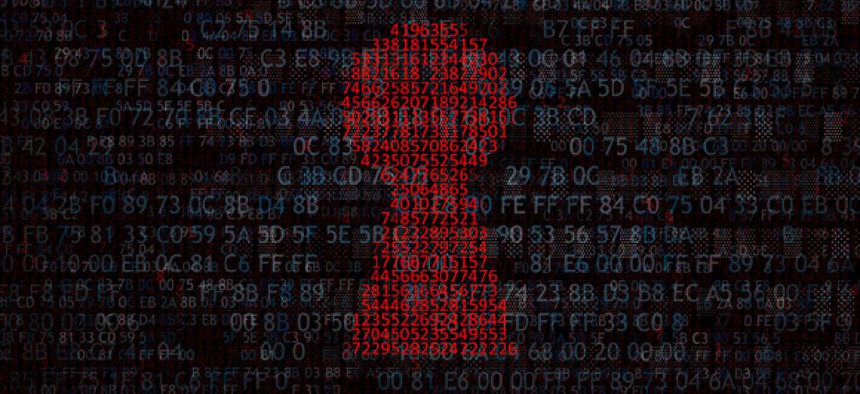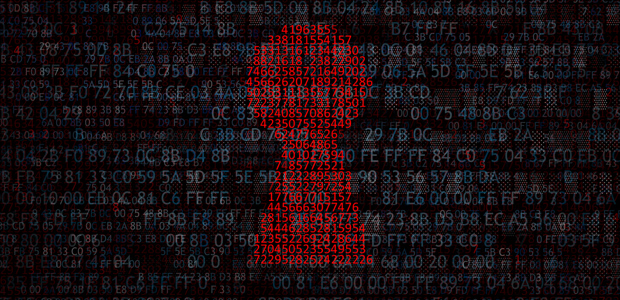CISA's Wales backs new response, recovery fund

Brandon Wales, acting director of the Cybersecurity and Infrastructure Security Agency, said the funding would go toward expanding CISA's incident response teams with additional contractors and developing new technologies to be used by those teams.

Following four major cybersecurity attacks on the federal government in recent months, the acting head of the Cybersecurity and Infrastructure Security Agency on Tuesday enthusiastically backed a bipartisan bill to establish a "response and recovery" fund for cybersecurity incidents.
The bill, introduced in April by Sens. Gary Peters (D-Mich.) and Rob Portman (R-Ohio) would allow the homeland security secretary and national cyber director to declare a "significant cyber incident." After doing so, DHS and CISA would have immediate access to funds to begin helping federal and private sector entities respond to incidents. The two senators, who lead the Senate's Homeland Security and Governmental Affairs Committee, proposed establishing the fund with $20 million to be used over seven years.
The fund was also included in the Biden administration's initial 2022 budget plan.
"We think that this is an absolutely instrumental advancement in the country's ability to respond to significant and catastrophic cyber incidents," CISA's acting director Brandon Wales told the Senate committee on Tuesday. "We have seen that our adversaries are increasingly focused on broad campaigns -- campaigns that do not focus on any individual sector."
Wales said the funding would go toward expanding CISA's incident response teams with additional contractors, developing and deploying new technologies to be used by those teams and reimbursing other agencies, such as the Defense Department's U.S. Cyber Command, when CISA requests their assistance with a response effort.
Most of the congressional hearings about the government's recovery post-SolarWinds has focused on what went wrong and potential cybersecurity modernization. However, the Senate panel's hearing today featured the chief information security officers of two federal agencies that were compromised.
Ryan Higgins and Janet Vogel, CISOs for Commerce and Health and Human Services Departments, respectively, outlined immediate steps their agencies took after learning that Russian intelligence agents had breached their networks.
Peters questioned the CISOs about the level of detail included in the congressional notification sent by Commerce and the lack of a notification by HHS.
Higgins said Commerce notified lawmakers of a "major incident" at the time and said the lack of detail was due to the department's own lack of information in the moment. Vogel said HHS at the time did not feel the intrusion met that standard of a major incident and confirmed its decision with CISA not to declare an incident.
"When we received notice and the details of an incident, we were able to respond very quickly with an assessment of whether we had been compromised and the impact of that," said Vogel. "As we looked at the impact against the criteria, we felt that we had not lost any data, we had also firewalled everything appropriately, that there wouldn't be follow-up activity."
Vogel's response prompted Portman to float the idea of "tightening up" the requirement for agencies to report incidents, citing the equivalent requirements for CISA and the Office of Management and Budget as being "far more specific."
Colonial Pipelines response
Lawmakers framed many of their questions in light of the Darkside ransomware attack that has shut down a key natural gas pipeline for the East Coast for several days.
Portman asked Wales a series of questions about the level of communication Colonial Pipelines, the company operating that pipeline, has had with the federal government since being victimized on Friday. Wales told lawmakers that CISA had been brought into the investigation through the FBI. Wales also said he did not believe Colonial would have contacted CISA directly had the FBI not acted as an intermediary.
Asked if "that's a problem," Wales didn't answer directly, but said that there is "benefit" when CISA is brought into situations quickly because it can distribute relevant information to other critical infrastructure providers.
"It seems to me we also have to worry about these attacks, whether they are direct cyberattacks on the federal government or whether they are attacks on the private sector, whether they are ransomware attacks, being communicated to CISA," Portman said.


